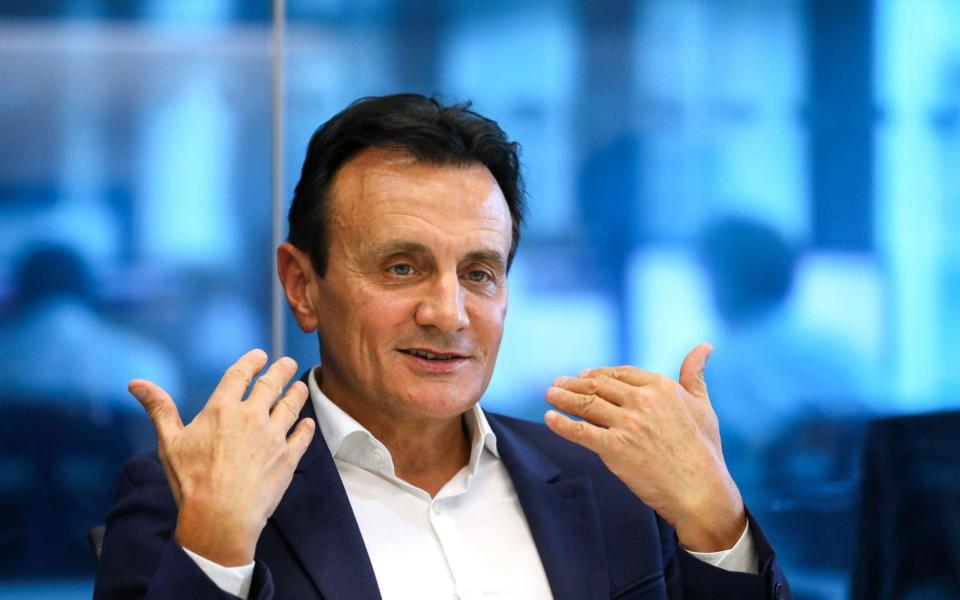AstraZeneca chief warns high tax Britain now ‘very unattractive’

High taxes are making Britain "very unattractive" for business, the boss of the country's biggest drugmaker has warned, as he said that China was likely to shape the medicines of the future.
Pascal Soriot, the drugmaker’s chief executive, said progress in China had been "incredible" in recent years thanks to a rapid rise in the number of new pharmaceutical companies in the country, all of which were pouring cash into new drug developments.
He said AstraZeneca was "definitely investing" in China as there was a "huge opportunity for companies to help patients and to grow, but also a huge opportunity to tap into innovation".
AstraZeneca is Britain's largest listed company, and is seen as central to the country’s ambitions to become a life sciences leader in the wake of Covid-19.
The company worked with Oxford University during the pandemic to deliver one of the world's most widely used vaccines against the virus.
However, Mr Soriot said recent tax moves were making it "very unattractive for companies to invest" and operate in the UK.
Earlier this year, it chose Ireland for a new £320m factory citing the less favourable tax policies in Britain, including rises in corporation tax and a major surge in NHS levies.
Mr Soriot is among the most high profile business leaders criticising ministers for failing to capitalise on the boom in interest in Britain following Covid-19.
He said on Thursday that AstraZeneca was in discussions with the Government to see whether there is "an opportunity to improve the circumstances for the next few years".
Conversations had been constructive, he said, although Mr Soriot urged ministers to keep their eye on making Britain a better place to invest.
"We're well aware of the challenges that exist, financial challenges, with inflation, with the cost of interest rates going up, the cost of the war, but at the end of the day, it's important for any government to also keep their eye on the long term," he added.
It comes as Mr Soirot suggested that China was an increasing focus for AstraZeneca, with Europe’s importance waning. AstraZeneca is already the largest foreign pharmaceutical company in China.
He said: "There has been a lot of investment in great science and a lot of companies are now innovating. You now have more companies coming up with first-in-class products or new technologies that are going to shape the future of medicine."
Europe as a whole, meanwhile, has been struggling to keep pace. "Unfortunately the UK, and Europe as a whole, has been falling behind not only the US but also Japan, China and a number of other markets," said Mr Soirot.
He pointed to figures which showed plateauing clinical trial rates and new businesses launching across Europe.
Mr Soirot said this was because countries including the UK needed more than academic research and investment from pharma giants including AstraZeneca and GSK to create thriving life sciences sectors.
"You need an environment that basically provides the right incentives, the right tax environment, the right environment to conduct clinical trials... and very importantly, you need access because there's no point developing the right innovative medicines, if patients cannot get access to them," he added.

 Yahoo Finance
Yahoo Finance 